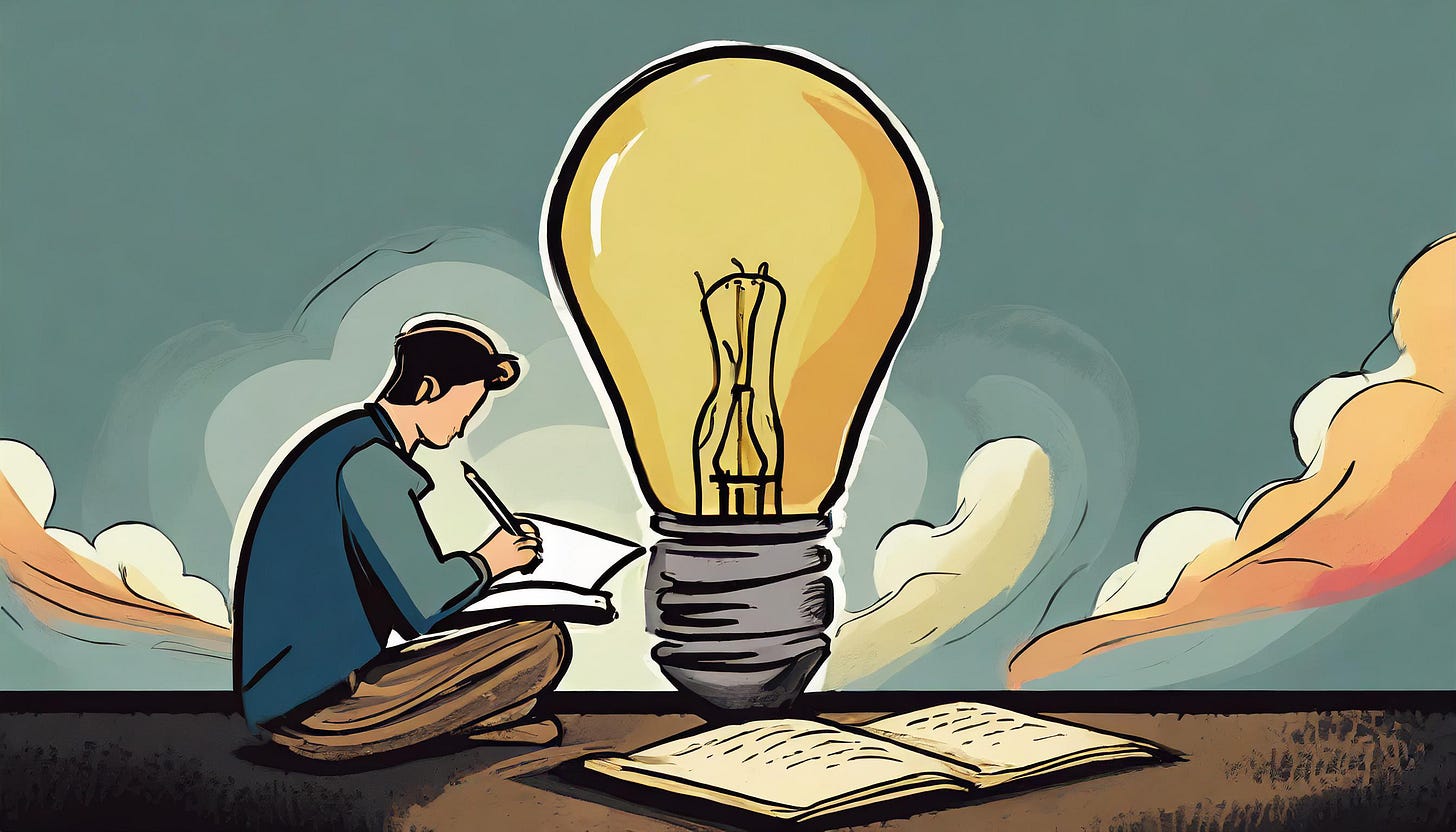Theft and sleight-of-hand: two skills a writer should perfect...
...even if that might be considered a little 'immoral'.
“Write what you know” - Mark Twain
Regularly on Substack you see articles contemplating what a writer should write about, or open-endedly trying to get to the source of a writer’s inspiration. Potentially these posts might also lament the struggle to put pen to paper, commonly referred to as ‘writer’s block’.
The latter, when utilised in the context of not being able to think of anything to write about, is in my opinion not a real thing at all. Yes, there may well be some form of psychological trauma which drives a fear of committing one word to sit in front of another, or of deciding whether to write about A or B, but when allied to “I can’t think of anything to write about” ‘writer’s block’ is surely no more than an excuse for inactivity.
Not only do we each have lots about which we could write, we are in the glorious - if daunting - position of being in possession of more material than we can ever have sufficient time to explore.
Often when challenged to “write what you know” people will say they know nothing, that their lives are not special, there is little about them that is remarkable. That’s glass less-than-half-full territory. We were all children, grew up, have experienced success and/or failure, have probably loved (and lost!), will have friends, have known people, enjoyed highs and suffered lows…even going to the shops or walking in the park are experiences, things we ‘know’.
And as far as being nothing special, that’s rubbish! All of the things listed above are unique. Your experience is different to my experience or anyone else’s because you are unique; only you could have responded to that rail or coach or bus trip in the way you did.
That’s the glass more-than-half-full perspective.
And you know what? It’s even better than that. Every second of every day we are surrounded by ‘material’ that is begging to be written about: that painting on the wall = an ekphrastic poem; the unexpected letter from an old friend = a short story; the tragic news item = a whole novel.
Moreover, we are surrounded by other people - and people are what make stories; people inhabit them, are their lifeblood. Just go and sit in a Costa or Starbucks for an hour and watch and listen. Those two women sitting by the window: what might their stories be, after all one of them looks quite upset? And the three men in the far corner: why are two of them in suits and one looks remarkably scruffy? What’s the story there?
We are surrounded by characters and objects to which the writer in us can respond - and to which we will each respond in a different way.
Nothing to write about? Rubbish!
Given such an inexhaustible field in which to sow seed, a writer needs to be prepared to do so i.e. to ‘steal’ people they see and use them as seedlings from which stories and poems and plays can be grown. Once you have these people on your side you can turn them into whoever you want them to be, make them do whatever you want. That’s where the sleight-of-hand comes in.
In a café once I was served by a waitress who was from Eastern Europe. There was nothing particularly remarkable about her, but I knew she must have a story: why was she now in the UK? what were her aspirations for her life? And so on. A week later she was in my short story “Damage” (in the collection An Irregular Piece of Sky). Although there may have been a physical resemblance between the real waitress and my character, that was as far as it went. I didn’t identify her. Indeed, I couldn’t identify her, and I kept the location of the café a secret. Thus her identity was protected.
If you were minded to, you could make a list of the ‘events’ in your life. How many of them might form the basis for some creative writing, whatever the genre? And I don’t mean memoir - though that might just be your thing. If you haven’t tried it, how do you know whether it is or not?
But remember your reader. However you translate your experience, your work has to be ‘open’ enough for your reader to be able to relate to it, apply it to their own lived experience. You need to move, educate, inspire, entertain - and if you do that, no-one will care too much where your idea came from.
So, take the bones of one of those experiences, the events lived through or people seen - perhaps from that hour spent in the café! - and reimagine it in the shape of another person, another set of circumstances… Write what you know.
Ready, steady, go!
There are a whole lifetime’s worth of stories awaiting us whenever we walk out of our house.





Nothing to write about is rubbish. In a local bar two locals. Often seen. Odd to say the least. I can use them as characters. At a bus stop or a cafe characters are there to be used.
I agree with you about the idea of writer's block. You can knock out anything. If you ain't got any ideas for a story, you can get going with a warm up, describe the room you're in, whatever's going through your bone box at the minute, or what you got up to the night before, debauchery, or a cuppa with the cat.